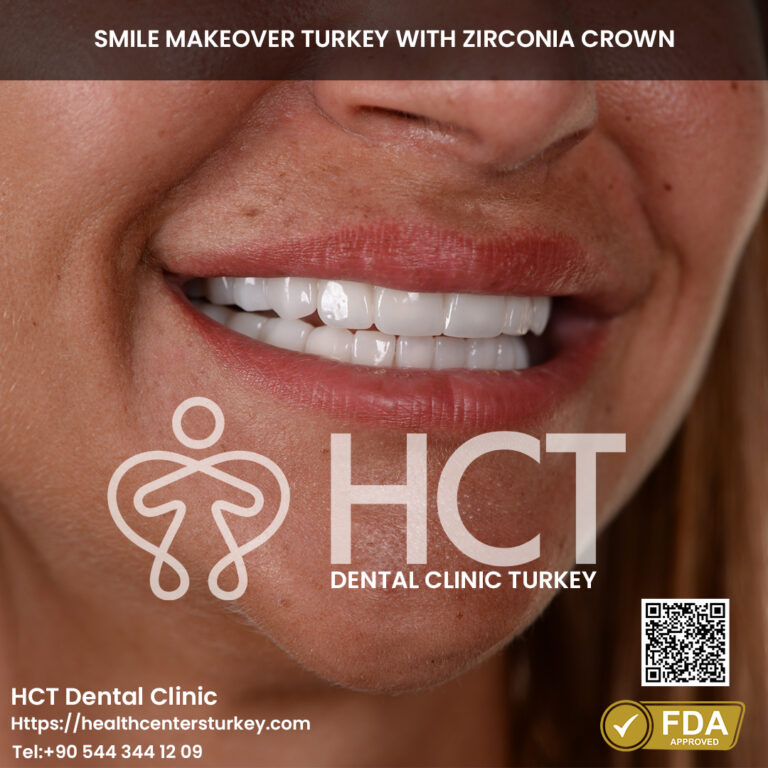Enhance Your Dental Care with Skilled Professionals in Turkey
Dental implants have become a well-liked solution for those seeking to replace missing teeth. Understanding how these implants can have an effect on adjacent teeth is crucial for anyone considering this process, as well as for dentists and specialists involved in dental care.

One vital side is that dental implants are designed to be anchored into the jawbone, which suggests they are independent of adjacent teeth. Unlike dental bridges, which frequently require the alteration of neighboring teeth, implants can fill the gap without compromising the health or structure of those surrounding teeth.
This independence helps preserve the integrity of adjacent teeth. When a tooth is misplaced, there can be a natural tendency for neighboring teeth to tilt or shift into the empty area. Such movement can lead to misalignment, which can have an result on chew and overall oral health. By inserting an implant, you effectively prevent this potential shift, selling better alignment in the long run.
Tips for Finding Quality Dental Care in Turkey
Additionally, dental implants assist maintain bone density within the jaw. A natural tooth root provides stimulation to the encircling bone, maintaining it wholesome and strong. When a tooth is missing, the bone can start to deteriorate as a end result of lack of stimulation. With a dental implant mimicking a natural root, bone loss may be minimized, which indirectly advantages adjacent teeth by preserving the overall structure of the dental arch.
While dental implants are advantageous, improper placement can influence neighboring teeth. If an implant is positioned too close to a different tooth, it could exert undue strain on that tooth, leading to discomfort or potential injury. Proper planning and imaging strategies are essential for avoiding such points.
All-inclusive Dental Care Packages for Perfect Smiles
Moreover, sustaining good oral hygiene is crucial after receiving an implant. If not correctly cleaned, surrounding teeth may turn into susceptible to dental points corresponding to decay or gum disease. This underscores the importance of diligent oral care following the process to ensure both implants and adjacent teeth stay healthy.
Regular dental check-ups are also important for monitoring the health of surrounding teeth. Dentists can identify any shifts or potential problems early, allowing for well timed interventions. This proactive approach ensures that both the implant and adjacent teeth can coexist with out complications.
Uncover Complete Dental Services throughout Turkey
Another consideration is the influence of implants on chunk force. When a single tooth is missing, the load of chewing might shift to adjacent teeth, potentially leading to put on or pressure. Implants restore proper chew dynamics by redistributing forces within the mouth, which can shield surrounding teeth from undue stress.
Some sufferers could raise considerations in regards to the appearance of dental implants. Well-placed implants can blend seamlessly with existing teeth, enhancing total aesthetics. In distinction, failing to replace a missing tooth can lead to aesthetic issues, together with collapsing check here of facial structure and adjustments in smile dynamics.
It's also worth discussing the psychological elements of dental health. Experiencing tooth loss can adversely affect one’s shallowness and willingness to engage socially. By restoring your smile with implants, you'll have the ability to positively affect not only your oral health but also your emotional well-being.
Long-term success of dental implants typically hinges on numerous elements, together with the affected person's health, maintenance habits, and the standard of the preliminary process. If adjacent teeth are wholesome and correctly cared for, the chances are they will continue to thrive alongside the implants.
Secure Optimal Teeth Health through Affordable Treatments in Turkey
In conclusion, dental implants play a vital function in not just restoring particular person smiles, but in preserving the health and structure of adjacent teeth. By preventing shifting, sustaining bone density, and redistributing chew forces, implants can be positive that surrounding teeth stay in optimal condition. Proper placement, hygiene, and common dental visits can additional enhance the benefits of dental implants, resulting in a more healthy, extra assured smile for years to come back.
- Dental implants can help preserve the alignment of adjacent teeth by providing a stable anchor, stopping adjacent teeth from shifting into the hole left by a missing tooth.
- The presence of an implant may stimulate bone growth within the jaw, helping to preserve the overall structure and integrity of the adjacent teeth.
- Unlike conventional bridges, implants do not require alteration of surrounding teeth, thus preserving their power and anatomy.
- Implants can improve the distribution of chew forces evenly across the dental arch, reducing the stress on neighboring teeth during chewing.
- A well-integrated dental implant can decrease the chance of bone loss within the space surrounding adjacent teeth, contributing to their long-term health and stability.
- The aesthetics of adjacent teeth can be improved as a result of support offered by implants, which may lead to better general cosmetic outcomes.
- With correct placement, dental implants can prevent gum recession round adjacent teeth by sustaining enough dental architecture.
- Implants can help mitigate the risks of periodontal disease in nearby teeth by selling wholesome gum tissue and providing a cleanable floor.
- Long-term success of dental implants can result in improved oral hygiene routines, which in turn advantages the health of surrounding teeth.
- The improved practical ability of an implant can encourage patients to chew more successfully, thus growing saliva production and aiding within the safety of adjacent dental tissues.undefinedHow do dental implants have an result on adjacent teeth?
What are dental implants and how do they work together with adjacent teeth?undefinedDental implants are synthetic tooth roots which are surgically placed into the jawbone. They present a steady foundation for replacement teeth whereas guaranteeing minimal disruption to adjacent teeth, preserving their integrity and alignment. Save Big on Implants in Turkey.
Your Guide to Dental Procedures in Turkey
Can dental implants trigger problems for nearby natural teeth?undefinedGenerally, dental implants don't hurt adjacent natural teeth. However, if the implant is not positioned appropriately or if there’s inadequate oral hygiene, it could lead to complications corresponding to adjacent tooth decay or gum disease.

Will getting a dental implant change the method in which my adjacent teeth feel?undefinedMost patients report no change within the sensation of adjacent teeth after implant placement. However, it may take some time to adjust to the presence of the implant, similar to how one may adapt to other dental restorations.
Can dental implants help preserve the health of adjacent teeth?undefinedYes, dental implants can help maintain the health of adjacent teeth by stopping bone loss that may happen after tooth loss. This preservation supports the alignment of nearby teeth, reducing the risk of shifting or misalignment.
Experience Top-tier Dental Care at Affordable Prices
Do I need to switch adjacent teeth when getting an implant?undefinedTypically, adjacent teeth do not need alteration when placing an implant. This is one of the benefits of dental implants over traditional bridges, which often require reshaping adjacent teeth for support.
How does the therapeutic strategy of an implant affect nearby teeth?undefinedThe healing course of entails Your Domain Name osseointegration, the place the implant fuses with the jawbone. During this time, adjacent teeth remain unaffected and retain their function, although it’s important to follow post-operative care recommendations. Obtain Cost-Effective Oral Health Services that Meet Your Needs in Turkey.
Premium Cosmetic Veneers for a Stunning Smile in Turkey
Can dental implants lead to bone loss round adjacent teeth?undefinedIf dental implants are positioned properly and cared for adequately, they need to not result in bone loss around adjacent teeth. In fact, they may help stimulate bone progress, combating the natural bone loss that usually follows tooth extraction.
What precautions ought to I take to protect adjacent teeth after getting an implant?undefinedRoutine dental hygiene, including brushing and flossing, along with common dental check-ups, is crucial. Avoiding hard foods and following your dentist’s aftercare directions may also protect both the implant and adjacent teeth.
Is it common for adjacent teeth to shift after an implant is placed?undefinedIt's not typical for adjacent teeth to shift after an implant placement, especially when the implant is positioned correctly and maintained correctly. If there’s any movement, it may be because of different underlying issues that must be evaluated by a dental professional.